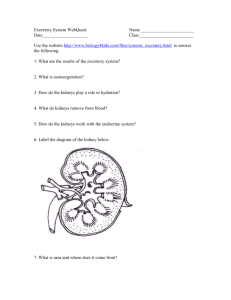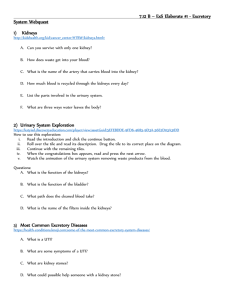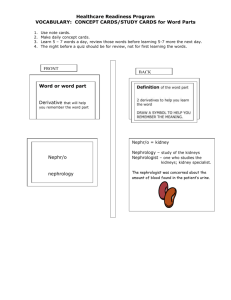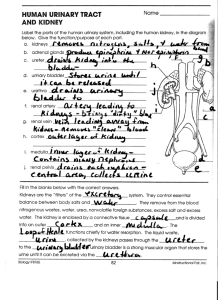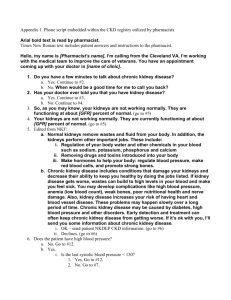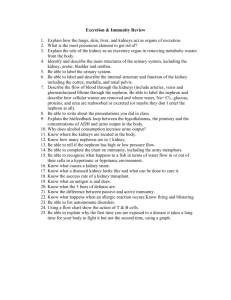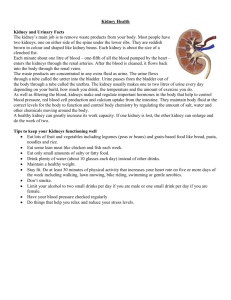Take Care of Your Kidneys - University of Michigan Health System
advertisement
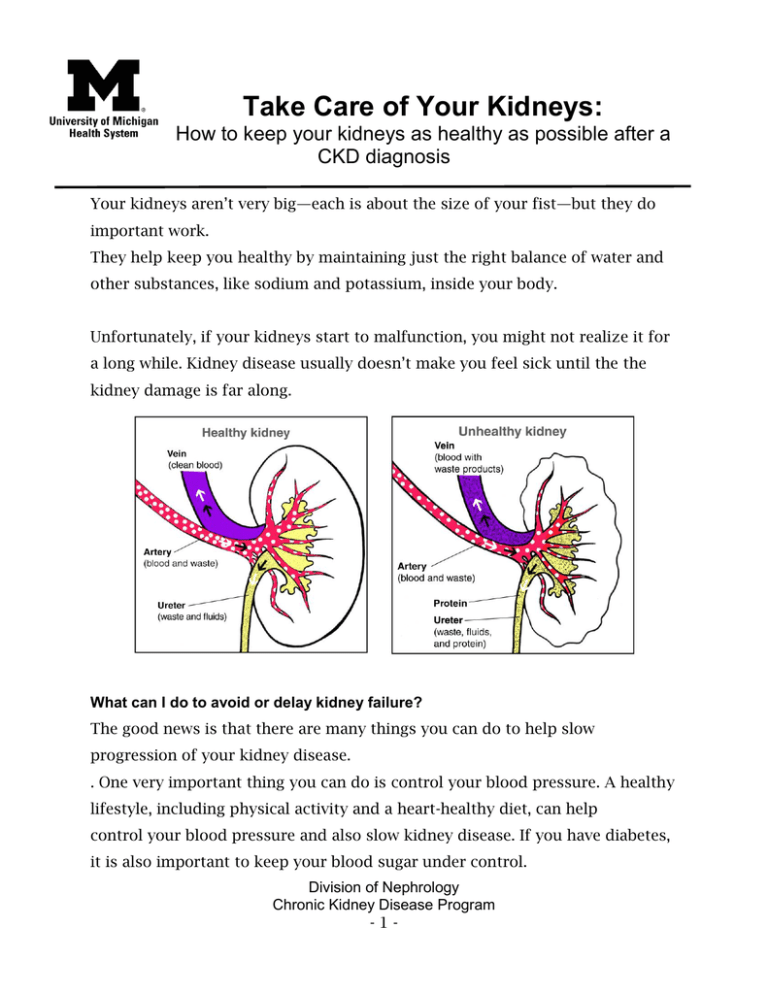
Take Care of Your Kidneys: How to keep your kidneys as healthy as possible after a CKD diagnosis Your kidneys aren’t very big—each is about the size of your fist—but they do important work. They help keep you healthy by maintaining just the right balance of water and other substances, like sodium and potassium, inside your body. Unfortunately, if your kidneys start to malfunction, you might not realize it for a long while. Kidney disease usually doesn’t make you feel sick until the the kidney damage is far along. What can I do to avoid or delay kidney failure? The good news is that there are many things you can do to help slow progression of your kidney disease. . One very important thing you can do is control your blood pressure. A healthy lifestyle, including physical activity and a heart-healthy diet, can help control your blood pressure and also slow kidney disease. If you have diabetes, it is also important to keep your blood sugar under control. Division of Nephrology Chronic Kidney Disease Program -1- Most Americans eat more sodium and protein than the body needs. It’s your kidneys’ job to filter and get rid of the leftovers 24 hours a day, 7 days a week. Healthy kidneys can generally handle the workload, but if you have kidney damage, too much sodium can have a negative effect. We generally recommend eating less sodium and more fruits, vegetables and whole grains. To reduce fats, choose lean meats and low-fat or fat-free dairy products. Certain over-the-counter medications, including common pain medications like Advil® and Motrin® (ibuprofen), or Aleve® (naprosyn), can also be harmful for people with CKD. Even some vitamins, like too much vitamin C, can be harmful. If you have CKD, check with your pharmacist or doctor before trying new overthe-counter medicines or herbal supplements. Your doctor may recommend additional changes to protect your kidneys. If lifestyle changes aren’t enough to slow down kidney damage, your doctor may prescribe medications to reduce blood pressure, control blood glucose and lower your cholesterol , especially if you are over 50 years old.. Don’t wait to take the first step to keep your kidneys as healthy as possible! Below are 7 things you can do to protect your kidneys. We look forward to helping you! Chronic Kidney Disease Program Keep Your Kidneys Healthy -2- Smart Choices to Protect Your Kidneys Work with your doctor to control your diabetes, high blood pressure or heart disease. Take medicines the way your provider advises. Don’t take over-the-counter medications or supplements without checking first with your doctor or pharmacist. Know your “kidney numbers”- your blood pressure, GFR, and A1c Cut back on salt. Aim for less than 2,000 mg (=2 grams) of sodium daily. o Some people with CKD should not eat more than 1,500 milligrams per day. Ask your doctor what he or she thinks is the right amount of sodium for you. Choose foods that are healthy for your heart. Be physically active. Keep your weight at the ideal goal for you If you smoke, take steps to quit. To learn more visit: http://careguides.med.umich.edu/kidney Disclaimer: This document contains information and/or instructional materials developed by the University of Michigan Health System (UMHS) for the typical patient with your condition. It may include links to online content that was not created by UMHS and for which UMHS does not assume responsibility. It does not replace medical advice from your health care provider because your experience may differ from that of the typical patient. Talk to your health care provider if you have any questions about this document, your condition or your treatment plan. Patient Education by University of Michigan Health System is licensed under a Creative Commons Attribution-NonCommercial-ShareAlike 3.0 Unported License. Last Revised 10/02/2014 Adapted from: NIH News in Health, March 2013 issue Chronic Kidney Disease Program Keep Your Kidneys Healthy -3-
